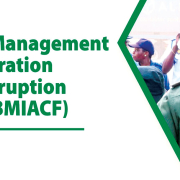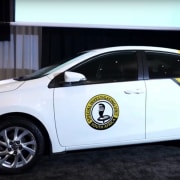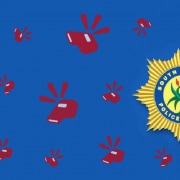|
Getting your Trinity Audio player ready...
|
There is some movement on investigations and prosecutions arising from the lengthy final report of the Zondo commission into state capture – but not much.
In mid-June the Directorate for Priority Crime Investigation (Hawks) and the Independent Police Investigative Directorate (Ipid) briefed the parliamentary Portfolio Committee on Police on progress made in their investigations.
Present were Lieutenant-General Godfrey Lebeya representing the Hawks, national police commissioner Fannie Masemola, police minister Bheki Cele, and Osborne Khanyi, deputy director of investigations for Ipid.
Members were not impressed with the information they received, remarking that the investigations into state capture had been very costly and furthermore, that the Zondo commission itself came with a price tag of almost R1-billion. They asked about the cost of these investigations to the Hawks and Ipid, as it seemed to be increasing, but there were no real outcomes to show for the investment of public resources.
Is the justice system serious about this, members asked.
Hawks could do better
In his presentation, Lebeya broke down the progress of Hawks investigations as follows:
- Number of cases on the court roll: 4
- Number of cases pending decision from the National Prosecuting Authority (NPA): 1
- Number of cases dockets under investigation: 8
- Number of enquiries under investigation: 37
- Number of cases finalised: 2
- Number of arrests: 27 (19 natural persons and 8 juristic persons).
In the matter of the two finalised cases, one related to the controversial Free State Housing Project, which was worth R1-billion but did not involve any houses actually being delivered. The NPA prosecuted Moses Mokoena, the provincial head of the Department of Human Settlements from 2010-2011, on charges of contravening the Public Finance Management Act and the Prevention and Combating of Corrupt Activities Act. He was sentenced to 10 years imprisonment, suspended for five years, on count one; and five years imprisonment, suspended for five years, on count two.
The other finalised case was that of the prosecution of former South African Airways chairperson Dudu Myeni, for disclosing the identity of an anonymous witness during her testimony at the Zondo commission. She was convicted and sentenced with the option of paying a R120 000 fine or serving two years imprisonment, half of which was suspended for five years.
Members were not impressed with either of these outcomes. In the case of the Free State Housing Project, they said, while prison sentences had been imposed, these were suspended for five years each – “In other words, the accused was walking around freely”.
While the committee had empathy for the investigators, in the end, it noted, there was no punishment and no justice. Mokoena was a senior official and the justice system had failed the country in this regard, because such a senior employee – the head of a department – must be held accountable.
Cele said he had noticed that sentences had also been suspended in other serious cases, such as the trend of political killings in KwaZulu-Natal.
In Myeni’s case, the committee was unhappy that she had received a “slap on the wrist” for divulging the identity of what they assumed to be a whistle-blower. This was a serious problem because such conduct should be dealt with very strongly. If people feared coming forward, they said, they would stop doing so, to the detriment of the country.
Members noted that in November 2022, a team of 20 experienced Hawks investigators had been assembled to prioritise the investigations emanating from the Zondo commission. They were concerned, therefore that very few cases of state capture were under investigation, and asked how long it would take the Hawks and other authorities to make “proper progress” on outstanding issues, and to ensure that the allegations had been dealt with properly as expected by the people of South Africa.
Lebeya replied that in some cases, several cases of criminal offences were incorporated into one docket, as long as the accused person would be charged in respect of each count.
Ipid grilled on state capture investigations
Ipid, meanwhile, told the committee that it was busy with three recommendations that arose from the Zondo commission’s investigation into the Free State’s Vrede Dairy Farm Project. The recommendations called for an independent investigation of abuses, non-responsiveness, and inaction by the South African Police Service (Saps). Some of the allegations related to the Vrede Police Station.
Committee members decried the irregularities that clearly took place at the Vrede Police Station and asked if there had been consequence management. They noted that disciplinary action had not been implemented against the former Vrede station commander, to which Cele replied that Ipid was investigating why this was so.
Although Ipid had presented only one specific case of police inaction, members said, this was the norm at police stations across the country. They asked if Saps had ensured that all police stations had received the directive to attend to complaints from members of the public rather than referring them to stations further away, to which Masemola replied that police station management is continuously informed that the members of the public must be assisted at the nearest point of service contact.
Investigations are proceeding in accordance with the Ipid investigation plan, the committee was informed, and on 18 August 2023 Ipid will report further progress to the director-general in the Presidency.








